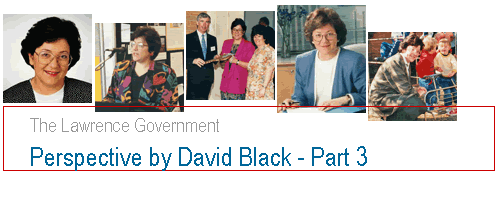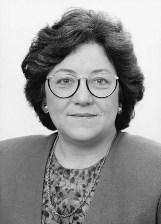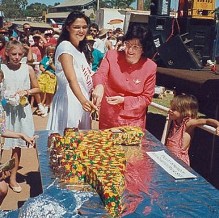
Coal-fired power station
Financial problems also developed in connection with the Mitsubishi-Transfield power station agreement. In June 1992 a fresh contender, Asea Brown-Boveri, was endorsed. However the start of the project was deferred for eighteen months because of a lower than expected demand for power. The government for its part continued to argue the case for a new coal-fired power station rather than a gas fired station.
Swan Brewery Controversy
Another ongoing source of controversy concerned the future of the Swan Brewery buildings and site. Independent MLC Reg Davies tried to introduce a bill ensuring that the site was cleared for parkland and that the agreement of both houses of Parliament would be needed to approve any future plan for redevelopment. His bill was ruled out of order in the Legislative Assembly. Ian Alexander introduced an alternative bill requiring all future work on the brewery to be authorised by Parliament. This was defeated on the casting vote of the Speaker and with Independent Liberal Ian Thompson voting with the government. As the latter bill was being debated, the government announced that a contract would be signed with the developer receiving a long lease on the site in return for spending $26 million to restore the buildings according to heritage principles.
Collapse of Western Women
The Government was under pressure too as a consequence of the loss of depositors’ funds following the collapse of Western Women, a financial investment company organised to attract female investors. The central issue concerned the extent to which the depositors had been misled by financial advice received from the government’s Women’s Information and Referral Agency (WIRE). Conflict developed over alleged disparities between the findings of a public service inquiry and evidence given to a Legislative Council committee set up to inquire into the affair. The matter was eventually referred by the Premier to the Legal Aid Commission and the Ombudsman was to inquire into the Public Service report. Despite opposition from the ALP State Executive, the Premier acted to abolish WIRE, replacing it with a Women’s Information Service within the Office of Women’s Interests.
WA Advantage package
On 12 February 1992, two years to the day since she became premier, Dr Lawrence announced a WA Advantage package to ‘reposition Labor as a partner of the WA Business Community’. One central proposal was privatisation of State assets with a commitment to sell the State Government Insurance Office and up to forty-nine per cent of the Rural and Industries Bank. Other proposals included a planned extension of the metropolitan rail network to Rockingham and Mandurah, a feasibility study for a steel mill and an investigation of extending the standard gauge railway line to Bunbury. Other initiatives included making provision for enterprise agreements in the State’s Industrial Relations legislation, the corporitisation of Westrail and the Midland Workshops, and an integration of the urban rail division and Transperth. Another interesting proposal in view of later events was for $3 million to be spent on a feasibility study into a proposed Kimberley water pipeline. The government also hoped for federal assistance with various rail projects arising from Prime Minister Keating’s One Nation statement made later that same month.
Social Advantage package
In May 1992, as a follow up to the WA Advantage initiative, the Lawrence Government launched its Social Advantage package with programs for children, families and the community. The Community Services Department was to be revamped and divided into a Youth Justice Bureau and a department for Community, Family and Children’s Services. However, the government found itself faced with continuing difficulties arising from the role played by health Minister Keith Wilson, a former Anglican minister turned Catholic. Wilson launched an ‘It’s OK to say no’ program to encourage abstention from sex to avoid contracting sexually transmitted diseases. Other members of the government favoured ‘safe sex’ campaigns. On this issue the Premier supported her minister. Further conflicts developed when Wilson attacked federal government health funding arrangements including a proposal that taxpayers with middle to high incomes should be required to take out private health insurance in addition to Medicare.
Ashburton by election in April 1992 and Liberal leadership change
In the midst of these controversies the government faced an electoral test with a by election required in the northwest seat of Ashburton. This resulted from the resignation and subsequent death of Pam Buchanan who had in the previous year been sacked from the ministry. Labor retained the seat with an adverse swing of only 3.2 per cent. This ‘disappointing result’ for the Liberals placed considerable pressure on opposition leader Barry MacKinnon who had earlier in the year announced the WA Liberals’ Fightback package to complement that announced federally by Opposition leader John Hewson.
At the time the Liberal party package was well received. It included significant elements of proposed privatisation, a management program to eliminate state debt, and the abolition of payroll tax. However several internal party disputes over preselection for the 1993 election, disappointing poll figures and the Ashburton result precipitated a direct party room challenge on 12 May. Deputy leader Richard Court, who had challenged MacKinnon unsuccessfully two years earlier, won the Liberal leadership by 20 votes to 12. The new deputy leader, Cottesloe MLA Colin Barnett, was chosen by lot after a 16-16 tie with Cheryl Edwardes.

Curtin University Library. Carmen Lawrence Collection. Records of Carmen Lawrence. Carmen Lawrence MLA, ALP candidate for Glendalough, 1993 State Election. CUL00005/3/61
Daylight saving referendum
On 4 April 1992, the same day as the Ashburton by election, Western Australians went to the poll to vote for the third time on whether or not, following a six month trial period, to adopt daylight saving. The No vote on this occasion was 53.14% of electors compared with 53.66% and 54.35% in the previous referendums. The turnout at 86.2% was relatively high for a non general election and there were 24 electoral districts in favour and 33 against.
Parliamentary differences and agreements
Parliament convened for the fourth and last sitting in March 1992. After the swearing in of future Speaker, Fred Riebeling, Labor had 28 members in the 57 seat house compared with 25 Liberal and National party members. There were also four independents—ex Labor MLAs Frank Donovan and Ian Alexander, and from the non-Labor ranks, ex Liberal MP Ian Thompson and Independent Liberal Elizabeth Constable. On some occasions during this session of parliament, it took the support of Ian Thompson and the casting vote of the Speaker to save the government from defeat. At the same time in the Legislative Council, Independent (and former Liberal MLC) Reg Davies voted with the government to end the duck shooting season and to reduce the permitted blood alcohol level while driving to 0.05, bringing WA law into line with the rest of the nation. Both Government and Opposition did agree to legislation strengthening controls over child pornography and also to adopt template legislation processes to provide for uniform legislation between the states. Subsequently a Select Committee was set up to establish appropriate procedures for the handling of uniform legislation. Moves were also set in place for parliamentary employees to receive access to the Industrial relations Commission.
Royal Commission Report
On 30 June 1992 the formal hearings of the Royal Commission finally concluded and the reporting deadline was extended to 31 October. The report, when it came in October and November, was in two parts. The first dealt with fourteen broad areas of inquiry and the second with concerns ‘over the fundamental weaknesses in the present capacity of our institutions of government, including the Parliament, to exact that degree of openness, accountability and integrity necessary to ensure that the executive fulfils its basic responsibility to serve the public interest’. Former Premiers Burke and Dowding were strongly criticised in the first part of the report. Among the numerous recommendations in Part Two were calls for the establishment of a Commission for the Investigation of Corrupt and Improper Conduct and for the creation of a Commissioner for Public Sector Standards. However, the Opposition resisted attempts to establish a Commission on Government by legislative means ‘and without delay” and government moves to consider the possibility of establishing the Commission by executive action were eventually abandoned.
On the political front the only immediate casualty of the Royal Commission’s Reports was Environment Minister Bob Pearce who resigned from the ministry and announced he would not recontest his seat in the 1993 election. Meanwhile, in September, Carmen Lawrence had reshuffled her ministerial team. She personally took on the Employment Portfolio as well as her new portfolios of Trade and Investment while Women’s Interests went to Judyth Watson. A further reallocation of duties came in October following Pearce’s resignation with Jim McGinty taking over the Environment. Tom Stephens MLC joined the ministry in November.
November 1992 - lead up to the 1993 State election
In preparing for the forthcoming general election, the Opposition parties finally agreed in November on the formation of a formal coalition with the Nationals in the event of an election victory. The Nationals were to receive at least four cabinet posts and their leader, Hendy Cowan, was to hold the position of Deputy Premier. This decision was possibly prompted by the electoral victory of the coalition parties in Victoria in October. By early December the opinion polls, despite a boost for the Coalition parties following the release of Part One of the Royal Commission Report, still suggested that the outcome of the election was far from certain either way. At that stage, Carmen Lawrence was still well ahead of Richard Court in the preferred premier count. Despite the strong popular support for the Premier, however, there were a number of negatives. There was controversy within the party over the government decision to provide Notre Dame Catholic University with a 150 hectare land grant at Alkimos north of Perth. The government endeavoured to pre-empt opposition by announcing that Notre Dame would forego the grant and instead share in a grant to the State’s four public universities.
Ongoing controversies surrounding the Western Women affair also plagued the government as did the fallout from a petition presented to Parliament concerning Brian Easton, the one time head of government agency Exim. The government was also having difficulty finalising negotiations with Asea Brown Boveri concerning the proposed privately owned and operated coal-fired power station. In November 1992, Cabinet eventually entered into a commitment for the power station to commence in 1994. Also in November 1992, despite opposition from some indigenous groups, State Planning Commission approval was given for the restoration of the Swan Brewery site to be undertaken by Multiplex under Heritage Council oversight. The Government also reached agreement with Aboriginal groups concerning Hamersley Iron’s $500 million Marandoo project. In addition, a new natural gas gathering project in Carnarvon received the go ahead in December.
Lawrence Government’s last budget
The Lawrence Government’s last budget was focussed on education, training and employment. For the third successive year there were no new increased taxes for the private sector and moneys allocated for public works were significantly increased to counteract rising unemployment. Health funding however remained a source of controversy and in November, Health Minister Keith Wilson resigned as a result of disputes over the part to be played by private health insurance in the next federal–State agreement leaving his successor Ian Taylor to negotiate the final terms.
Other legislative achievements
Two particularly significant items of legislation were passed during the government’s last parliamentary session. One allowed for the privatisation of the State Government Insurance Office and the other established the Freedom of Information Act and provided for the appointment of an Information Commissioner subject to parliamentary approval. The latter bill was subject to a protracted debate in both Houses of the Parliament. Only an eleventh hour agreement on the issue of the appointment of the commissioner enabled the bill to pass on the last sitting day before the election.
Election campaign and results
On 6 January 1993 the Legislative Assembly was dissolved and the writs issued for the election to be held on 6 February immediately after the school holidays. At the start of the campaign the polls showed the government and the opposition neck and neck but Carmen Lawrence well ahead in the preferred leader ratings.
The government campaign centred on an ‘Added Value’ economic statement emphasising the need to develop more secondary industry to process the State’s mineral wealth. The Opposition tried to focus attention on the alleged excesses of WA Inc. and to dissociate the party from the more controversial aspects of the newly elected Kennett Liberal Government in Victoria. One surprise announcement by the Premier during the campaign was a commitment to sell the state-owned Rural and Industries Bank which was to be merged with the privately-owned Challenge Bank. The campaign also saw the first ever leaders’ debate between Dr Lawrence and Opposition leader Richard Court take place at a time when the polls were moving against the government.

Curtin University Library. Carmen Lawrence Collection. Records of Carmen Lawrence. Dr Lawrence cuts 21st birthday cake with Shinju Festival Queen, Broome, 18 August 1990. CUL00005/2/41
In the upshot, the swing against the government on polling day was only 2.9%. This swing, added to the strong turn against Labor experienced in 1989, brought the government down, leaving it with only 24 seats out of 57 in the Legislative Assembly. Labor regained Morley and Perth previously held by Labor Independents but lost six of its own seats, including a number in the northern suburbs mortgage belt. Interestingly the government more than held its own in the more unionised seats, a result attributable to a strong campaign on industrial relations as linked to the Victoria experience. In the Legislative Council, Labor also had a very disappointing result. This was made worse by an error in the North Metropolitan Region which meant that the party was deprived of a ticket voting option for electors wishing to vote Labor.
Court Government
The new coalition ministry was sworn in on 16 February 1993 with Richard Court as Premier and the Nationals’ Hendy Cowan as Deputy Premier. The Court Government was re-elected in 1996 when the ALP won fewer seats than at any time since the end of the First World War. The 1996 result suggested that Dr Lawrence’s leadership had served to minimise the more immediate fallout from the Royal Commission Report. In relation to the Report, it took the Court Government two years to appoint the members of the Commission on Government which had been recommended by the Royal Commission and which, as already indicated, the Lawrence Government had tried to implement at the end of 1992.
After the election loss, Dr Lawrence, as Opposition leader, announced the composition of a twenty member shadow ministry including five women and in which she took responsibility as Shadow Treasurer and shadow minister for Employment and Federal Affairs. However, less than a year later, on 14 February 1994, she resigned as member for Glendalough in order to contest the federal seat of Fremantle made vacant by the resignation of former Treasurer John Dawkins. Dr Lawrence won the seat and remained as member for Fremantle until her retirement from parliamentary politics in 2008. While in government between 1994 and 1996 she served as Minister for Human Services and Health in the Keating Government.
Assessment
In assessing Dr Lawrence’s contribution to the government and the party it is interesting to note that in the 1993 state election she had won Glendalough by about a thousand votes after preferences with an adverse swing of only about 3%. Moreover at the ensuing state by-election, future minister Michelle Roberts was elected with virtually the same percentage on a two party preferred basis. Given Labor’s subsequent poor performance in the 1996 state election, Carmen Lawrence as leader would seem to have protected the ALP against a much greater loss of support in 1993 and 1994, given the massive and enduring fall out from the Royal Commission reports delivered on the eve of the general election.
Viewed in retrospect Carmen Lawrence was a talented and highly able politician who was deprived of the opportunity to make an even more substantial contribution to public life given the ongoing background of the huge financial and propriety issues which dominated the Royal Commission hearings for two of her three years as Premier and her subsequent involvement in a Royal Commission, even though she was personally exonerated on all counts. Electorally she attracted personal support which limited what would otherwise have been much more substantial losses for her party between 1990 and 1994. In the federal sphere, her opportunity to serve in government was limited by the Labor defeat in 1996 and the subsequent twelve year term of the Howard Government. The potential achievements of the government were also hamstrung by the fact that the Lawrence Labor Government did not have a majority in its own right in either House of Parliament and that there was so much focus on the work of the Royal Commission which continued for more than two of the government’s three year term. Among those initiatives which were able to be achieved were the passage of Freedom of Information legislation, the resolution of disputes over the future of the Swan Brewery site, developments in programs for children, families and the community, the establishment of template legislation processes to provide for uniform legislation between the states, the strengthening of laws against child pornography, and the privatisation of the State Government Insurance Office (SGIO).



